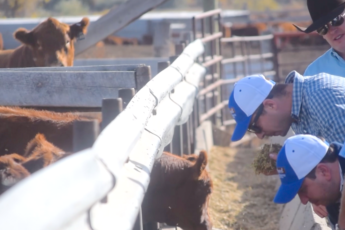Bringing hunters and landowners together on ethics, access, education
The State of Montana is 147,040 square miles. That’s about 94 million acres. About 70 percent of that is privately owned. Montana is also home to over 165,000 elk, almost 400,000 mule deer, 250,000 whitetail deer and around 160,000 pronghorn.
A lot of the critters spend their time on private land.
The old way of hunting in Montana was to knock on doors, develop relationships with landowners and politely seek permission to hunt. For a variety of reasons, that old-fashioned way of life is going away, and if hunters and landowners don’t work together to keep that access alive, find new ways to make existing access programs work better or even develop new access programs - Montana’s hunting lifestyle will be in serious jeopardy.
This changing landscape has generated controversy about the kinds of access that exist, and how those programs help or hinder wildlife management. Those conflicts have also long been at the heart of heated debates during Fish and Wildlife Commission meetings, legislative fights and even in the press. As usual, the conflict seems to garner more attention than honest efforts to bridge the divide between landowners and hunters, and that’s unfortunate.
But where one person finds controversy, others find opportunity. That’s where The Master Hunter program comes in. The concept was started a few years ago by One Montana, a group founded to help bridge the urban-rural divide that seems to separate Montanans a little more each year.
It’s a simple concept: Landowners are not a homogenous bunch. While FWP’s block management program or access easements work well for some landowners, they don’t for others. Likewise, hunters in Montana by and large are an ethical and thoughtful bunch, but like anything – a minority can ruin a good thing for everyone through disrespectful behavior.
This summer, 30 lucky hunters are going to take an advanced hunter education course that will help them find access to participating ranches in the program. These ranches will offer premium access to the master hunters who will have strict rules to follow on the participating ranches.
Nick Gevock, the conservation director for the Montana Wildlife Federation, has served for nearly three years on the working group that has developed the program. He has provided input on hunters’ perspective on everything from ethics, to hunting technique and respect for private property.
“This program has great potential to both directly build a core of ethical, effective hunters, and model better behavior for everyone who is the field,” he said. “It builds on existing access programs, and continues the strong working relationship between hunters and landowners that has helped Montana enjoy the longest hunting seasons in the West, while also supporting our agricultural heritage and economy.”
Zach Brown, who oversees this program for One Montana, is no stranger to the access debate either. As a two-term legislator from Bozeman, Brown has been at the forefront of hunting and private property rights issues during the legislative session, and has won awards from agriculture and sporting groups for his thoughtful and even-handed approach to wildlife management and property rights protection.
“We’ve had good response so far from both the hunting public and landowners who are interested in the program,” Brown said. “We’ll start with 30 hunters and if all goes well, we’ll add an archery component and expanded course offerings next year (2019).”
“Right now we have about half a dozen landowners enrolled and we’re hoping to top out at about 20 to 25 for the 2018 season. Recruiting more landowners is the next big step in our work plan,” he said.
The program so far has had tremendous support from hunting and ag organizations. Listed on their sponsors page is a who’s who of sporting and Ag groups as well as businesses like Schnee’s, Rocky Mountain Elk Foundation, Montana Stockgrowers Association, and The Montana Grain Growers Association among many, many others.
The Elk Foundation has been an early supporter and funder.
The program “will develop a network of highly skilled, ethical, safe hunters that will serve as an example to others and help establish positive relationships with private landowners,” said Blake Henning, chief conservation officer for RMEF.
Hunting season can mean shot-up livestock and center pivots, gates left open and generally bad behavior by some of the less-than-thoughtful members of the Orange Army. Landowners who allow access are getting fewer for a variety of reasons. Our hunting seasons are long and some of the most liberal in the West. We use public hunting to control herds and ensure we don’t have so much of a good thing that it hurts our neighbors and friends’ ranches or farms. That complicated mix of public resource and private property rights has been the center of the contentious debate about access. The Master Hunter program holds a promise that together, we can find that common ground to increase access, respect private property rights and help innovate.
Got something to say to Prairie Populist? Send news tips, story ideas and comments to [email protected].

